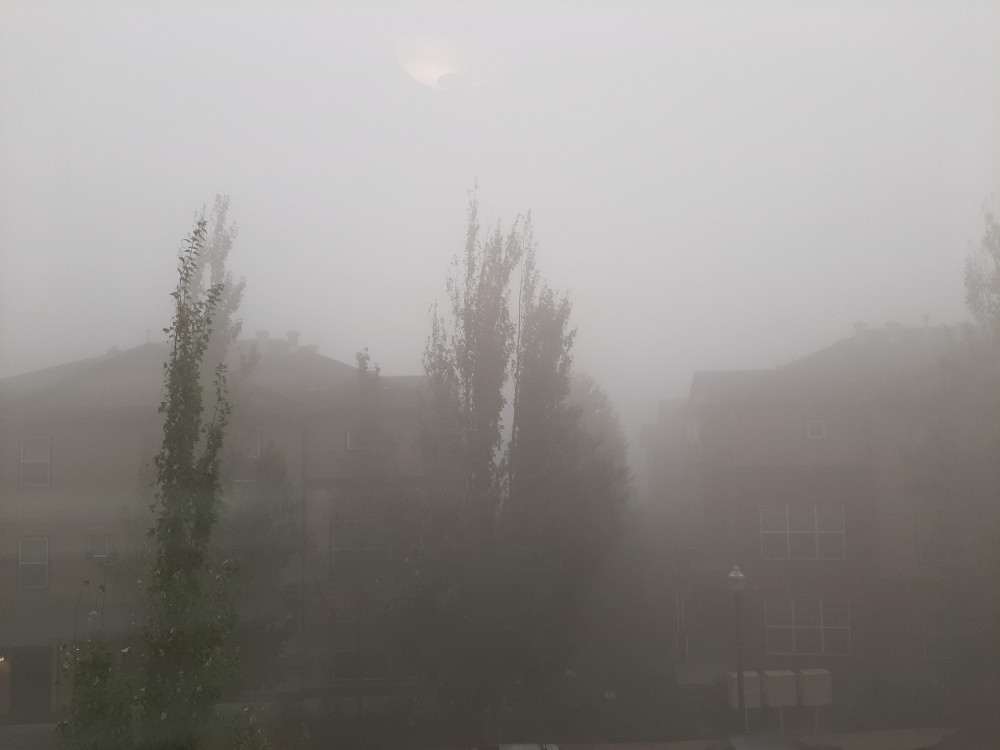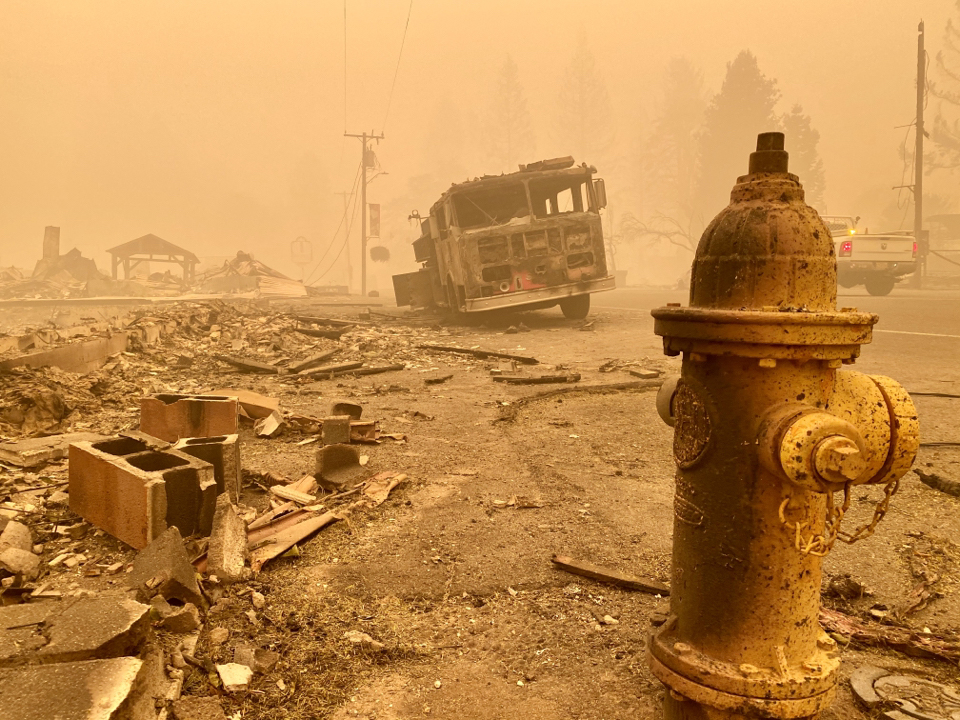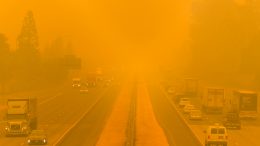Fire is the great equalizer.
Young or old, rich or poor, rural or urban, we’re all in the path of the flames these days. As I write this, tens of thousands of people in three western states remain under evacuation orders, more than a million acres of Oregon forest have burned, and entire towns have been wiped off the map. Meanwhile the residents of half the country find themselves cloaked in clouds of megafire emissions big enough to be seen from space.
Smoke from severe wildfires raging on the West Coast has blown thousands of miles east, reaching parts of the Midwest, Canada and upstate New York. https://t.co/jbvToWqhZ1
— CNN (@CNN) September 14, 2020
My small town just north of Portland, Oregon, hasn’t seen much fire, but the smoke has hung over us for more than 10 days. At first it seemed like nothing more than a few stray wisps and the smell of burning wood. By last Friday things were so bad we stopped going outside for longer than a few minutes. Over the weekend our air contained so much particulate matter and carbon monoxide that the Air Quality Index shot well into — and beyond — the hazardous zone.
A healthy AQI is in the 0-50 range. On Saturday ours reached nearly 600.
The official Air Quality Index stops at 500, meaning we’ve now gone well beyond what experts ever predicted when they created the index in the first place.
These levels of fire pollution pose potentially deadly health risks. It’s more than just difficulty breathing, headaches, nausea, watering eyes and irritated skin. The worst kinds of particulate matter — those smaller than 2.5 microns — can lodge in your lungs or even pass through them into the bloodstream, where they can cause heart attacks or other health problems.
It’s no wonder that one of the many websites tracking AQI used a cartoon skull-and-crossbones icon to indicate this weekend’s risk levels.

All things told, though, my own family’s been lucky — much luckier than those to the south. Our town never even came close to an evacuation order. Our home is safe, we’re relatively well-stocked, we have two brand-new filters in our air purifiers, and we work at home. We don’t need to expose ourselves unnecessarily. Aside from taking our elderly dog into the backyard a few times a day, we haven’t had to go outside since Thursday.
But what if we’d been closer to the flames, like so many of our friends and colleagues? Quite frankly, we might have been in serious trouble. For one thing, we’re down to our last N95 mask — not good enough for two people. Although we’re well stocked on pandemic-style cloth masks, they won’t protect us from particulate matter. Bigger picture, we don’t have a go-bag ready or nearly enough medical supplies, let alone a family evacuation plan for emergencies like this one.
That will need to change.
There’s a lot of talk about “the new normal” when it comes to climate change. Being prepared to hunker down at home or flee for your life has now become a big part of it.
None of this destruction should come as a surprise. The warnings about climate change, overdevelopment and decades of wildfire suppression have been repeated and intensified over the years.
We need to start listening to those warnings — and doing something about them. The conditions we’ve created will affect us all sooner or later.
Fire and smoke, like the other effects of climate change, don’t discriminate. They flow where they flow, following the natural patterns that have defined them for millennia. Everyone and everything in their paths get affected equally.
But the sins that helped feed those fires — those are not equal.
Fossil-fuel corporations, science-denying politicians, and greedy developers are among the worst offenders — those who brought the climate crisis to our forests, landscapes, towns and lungs.
We know this to be true. And yet, how many of them pay the price for their misdeeds? It’s the people who can’t flee or hide from the problems the powerful have caused who pay the highest prices: choking air, lost homes and memories, trauma. Sickness, collapsed wages, pain, suffering and death.

But the corporations that caused this crisis made record profits for decades. They ruined entire landscapes, then moved on to the next areas to plunder. Along the way their executives took home big bonuses and moved their mansions to areas less likely to burn or suffer other unnatural catastrophes.
Even the politicians who claim to understand the climate crisis don’t always commit to actions that match their words. California’s Gov. Gavin Newsom told reporters this weekend that the fires are fueled by climate change, yet his administration continues to approve new fossil-fuel extraction permits. Oregon Gov. Kate Brown called the fires ravaging her state a “once-in-a-generation event,” implying that they’re an anomaly, yet these mass catastrophes now seem to happen almost every year.
We don’t have time for government and corporations to waffle. The homes and towns and lives lost to flame tell us that the climate crisis is here, affecting us now. The smoke choking entire states tells us that things need to change, and quickly. This month’s destruction and the potentially record-breaking hurricane season building in the Atlantic that will follow tell us the threats we’ll face have become wide and varied, and already affect millions of people in this country alone.
Once our eyes stop watering from the smoke, will the powerful finally open their ears to listen?
As I write this on Monday morning, our air quality has shown marginal improvements. The AQI in my town slowly dropped — first to 520, then 500. That remains hazardous to human health, but at least it’s no longer literally off the chart.
Still, even indoors, I struggle a bit to breathe. My eyes continue to water, blurring out the sight of my monitor as I type. My skin itches as it never has on my worst allergy days. I’m tired from lack of sleep, yet wired from lack of exercise. And my hearts feels as heavy as it ever has.
![]()


